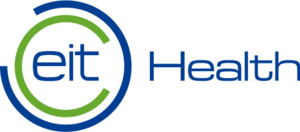Linking Education and Applied Practice for Innovation and Entrepreneurship.
Background
Entrepreneurial thinking can drive the development of innovative solutions. The European Commission has recognized this and highlights entrepreneurship and digital technologies—such as XR—as key drivers for advancing transformative innovation across sectors. The project Linking Education and Applied Practice for Entrepreneurship and Innovation in eXtended Reality – in short LEAPXR aligns with this mindset by promoting entrepreneurship and the use of XR technologies in healthcare.
Ageing populations and chronic diseases put a strain on healthcare systems worldwide. This situation calls for new approaches in healthcare. One promising avenue is the use of XR (extended reality) applications. XR makes it possible to simulate real-life scenarios in virtual environments, helping to prepare medical professionals for future challenges. It also enables remote collaborative care and individualized trainings that can be carried out more independently (e.g., at home) than conventional trainings. These solutions benefit not only the healthcare sector but also serve as inspiration for new XR applications in industry and other areas.
Project Content
The LEAPXR consortium – anchored in the European University Alliance E³UDRES² – aims to foster entrepreneurship in extended reality (XR) education and research. It specifically focuses on the health tech sector and aims to address global healthcare challenges through XR solutions. Its strong international network of academic and industry partners is the foundation for a thriving innovation ecosystem where students and researchers gain hands-on experience in applying XR technologies to real-world health challenges. Its overarching goals are to create a European hub of entrepreneurial excellence, drive sustainable regional development, and educate people at the forefront of tech-driven healthcare innovation.
Aims
The main aims of the project are to:
- Develop a clear and comprehensive institutional framework to support entrepreneurship and innovation.
- Create an inclusive XR Entrepreneurship and Innovation Hub that brings together higher education institutions and industry partners.
- Build European XR infrastructures that are open and accessible to both academia and industry.
- Design practical training models for entrepreneurship and XR, drawing on insights from the pioneering projects CITE (Circular Economy Initiative in Textiles) and E.I.N.S (Entrepreneurship and Innovation Network for Smart and Sustainable Europe).
- Establish a culture of collaboration in entrepreneurship and innovation.
Methods
LEAPXR employs a hybrid model of experiential and interdisciplinary learning, grounded in collaborative and constructivist learning theories and the theory of Effectuation (Sarasvathy, 2001). The methodology also draws on Lean Startup principles, design thinking, and agile development models. This European curriculum aims to foster entrepreneurial thinking and problem-solving skills in the creative and health tech fields at partner institutions.
Entrepreneurial mindsets can be cultivated through practical experience, and by cross-cultural, collaborative projects that enhance students' ability to innovate in real-world contexts. Therefore, LEAPXR is building a supportive ecosystem of pioneers and industry mentors, as well as bridges to the start-up sector. A digital toolbox to support entrepreneurial education and research is also developed.
Impact
The efforts of LEAPXR align with the aims of the EIT Knowledge and Innovation Communities (KICs) in the fields of Health, Digital, and Culture & Creativity, as it leverages transformative technologies to enhance the health and wellbeing of European citizens. The project nurtures entrepreneurial talent, bridges the gap between development and commercialization, and drives innovation in healthcare. It also strengthens regional inclusion by connecting SMEs, public organizations, and universities of applied sciences across Europe. Moreover, LEAPXR aims to embed entrepreneurial competencies into academic programmes, including European Joint Master initiatives such as GRACE (Gamified Reality Applications for Real-World Challenges and Experiences) and JEUDITH (Joint European Master for Citizen-Centered Digital Healthcare Technology Transformation). Through these efforts, the project empowers talent, accelerates innovation, and creates scalable solutions that contribute to shaping Europe’s digital, cultural, and creative future.
Literature:
Sarasvathy, S. D. (2001). Causation and Effectuation: Toward a Theoretical Shift from Economic Inevitability to Entrepreneurial Contingency. Academy Of Management Review, 26(2), 243–263. https://doi.org/10.5465/amr.2001.4378020
Funding
You want to know more? Feel free to ask!
Center for Digital Health and Social Innovation
- Saxion University of Applied Sciences [the Netherlands]
- Vidzeme University of Applied Sciences [Latvia]
- UCLL University of Applied Sciences Leuven-Limburg [Belgium]
- Hochschule Fulda University of Applied Sciences [Germany]
- JAMK University of Applied Sciences [Finland]
- Accent Inkubator GmbH
- Stichting WTC Twente [the Netherlands]
- Instituto Politécnico de Setúbal [Portugal]
- Universtitatea Politehnica Timisoara [Romania]
- Aleksandër Moisiu University Durrës [Albania]
- University of the Aegean [Greece]
- XR4EUROPE AISBL [Europe]
- Crazy Town Oy [Finland]
- Ontwikkelmaatschappij Oost-Nederland N.V. [the Netherlands]
- Moovd B.V. [the Netherlands]



